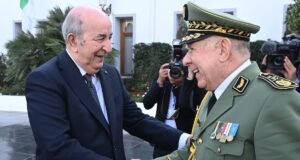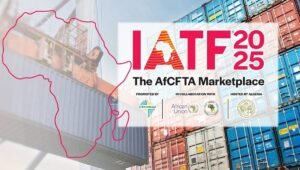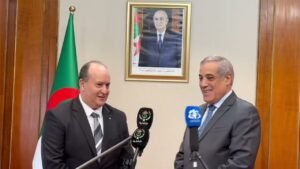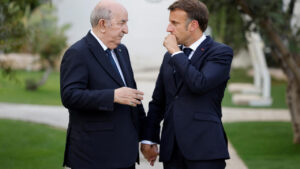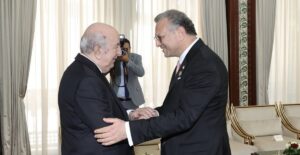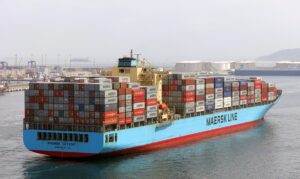President Tebboune: Between the illusion of wheat self-sufficiency and the reality of legalizing smuggling and money laundering!
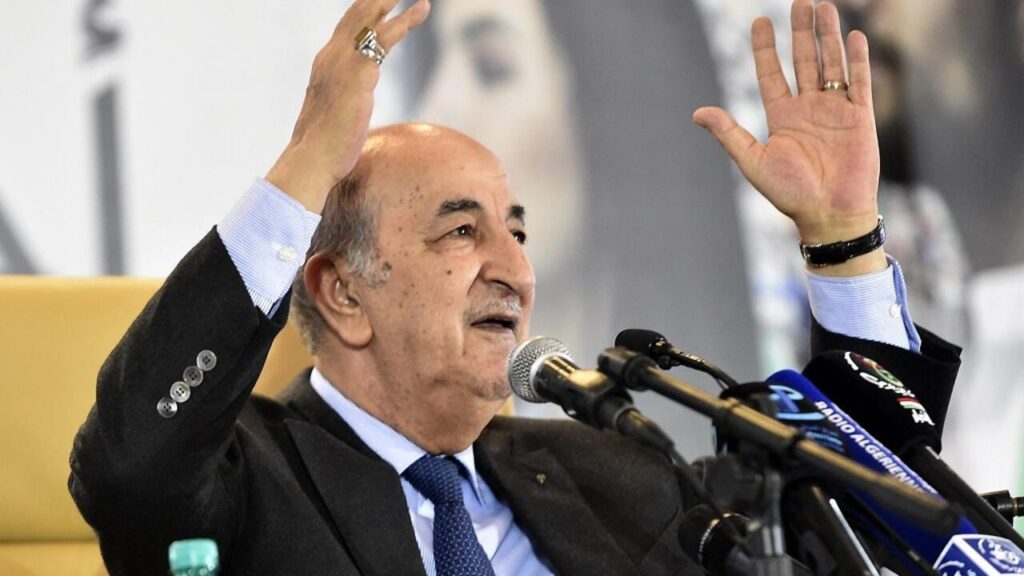
As usual, Algerian President Abdelmadjid Tebboune appears in press interviews replete with slogans and promises that have become familiar to Algerians, as if he were a new candidate running for office, not a president who has been leading the country for six years. Tebboune's economic "myths" are constantly repeated, from the "superiority" of the Algerian economy over others on the African continent, to the "boom" in non-oil exports and the "skyrocketing" GDP, through to "zero foreign debt" and "self-sufficiency in durum wheat." But are these slogans just empty propaganda, or do they reflect a thriving economic reality?
Controversial timing and “strange” economic decisions“!
The timing of this media outing, full of promises, comes amid the fallout from controversial government decisions that have sparked widespread criticism both domestically and internationally. We're talking here about the "invention" of the self-importer, which grants individuals the right to import up to €24,000 per month, provided they purchase it on the black market. This decision attempts to cover up the fact that it legalizes smuggling and money laundering. Let's not forget the implementation of the "travel grant," which allows every adult Algerian to purchase €750 annually (€300 for minors) at the official rate (150 dinars), then sell it on the black market for nearly double the price a week later. These decisions, which legitimize informal currency trading and turn Algerians into "street vendors," have prompted many to question their true effectiveness. Was Tebboune's media outing merely a desperate attempt to divert attention from these "dubious" decisions?
Self-sufficiency in durum wheat: reality or just empty slogans?
Achieving self-sufficiency in basic commodities has long been a strategic goal for any country. But when it comes to President Tebboune's announcement of achieving self-sufficiency in durum wheat by 2025, a year ahead of the target date, question marks are raised. Why? Because transparency is completely absent from Algeria's official figures, which raises doubts.
The numbers circulating say a lot.:
- Algeria imports approximately $2.7 billion Of wheat annually.
- The share of durum wheat in these imports is estimated at 20% only (i.e. about $500 million), while 80% Imports are soft wheat.
- In the agricultural year 2024-2025, Algeria is said to have imported about 850 thousand tons Of durum wheat. How can self-sufficiency be declared this year if these quantities were imported? Will they all be consumed in the second half of 2024? This is hard to believe.
Qatari and Italian investments: Whose production?
Official propaganda links this self-sufficiency to Qatari and Italian investments. But the reality is shocking:
- The Qatari project's production is primarily intended to feed its cows, not to meet Algerians' wheat needs.
- As for the Italian project, its production is directed towards the pastry industry, and will not go to the state.
Not to mention that Tebboune's announcement relied on a "good agricultural season," which is not guaranteed due to the vagaries of climate change. Therefore, declaring self-sufficiency based on aggregate production figures is highly misleading, rendering it "temporary" and susceptible to collapse with any drought.
Saving hard currency or “laughable propaganda”?
Official propaganda for Tebboune's "victory" claims that it will provide the country with significant hard currency. But is saving half a billion dollars on a $2.7 billion import bill worth all the celebration?
The bigger question is: How can we believe that the Algerian regime is keen to provide half a billion dollars in hard currency reserves, when it allocates a huge budget to the Ministry of Defense estimated at... $25 billion?! Couldn't much larger sums be allocated from the arms purchase budget to improve the country's hard currency reserves?
What about self-sufficiency in sugar, oil, milk, coffee, and other basic commodities that millions stand in line to obtain? Why doesn't President Tebboune mention them in his press conferences, in which he talks about everything except what benefits Algerians? And what about the fate of the billion-dollar deal he announced with Uganda to import powdered milk to solve the chronic shortage of liquid milk? Despite nearly two years having passed since its announcement, the same long lines for milk persist, with no noticeable improvement!
"Social bribes": temporary solutions that do not fix a weakened economy
The Algerian regime's reliance on "propaganda" to improve the economic situation of Algerians, without achieving any tangible improvement on the ground, reflects despair and an inability to effect any real change. These "social bribes," such as self-import regulations, travel stipends, unemployment benefits, and others, are merely temporary, palliative solutions that do not bring about real improvement in either people's lives or the structure of the economy. They are simply buying time and postponing the moment of collapse.
In a military totalitarian regime, it is difficult to imagine any government being able to bring about real improvements in the structure of the economy, the private sector's business environment, or a boom in foreign investment, thereby improving the lives of citizens.
To discredit every word President Abdelmadjid Tebboune says - or will say - no Algerian needs to be an academic. The two damning facts that everyone can see are:
A scene of Algerians queuing to obtain basic necessities..
Statistics on Algerian youth searching for "European paradise" via death boats.
Anything else is just “lies and nonsense” and will not save the regime from its inevitable fate.
